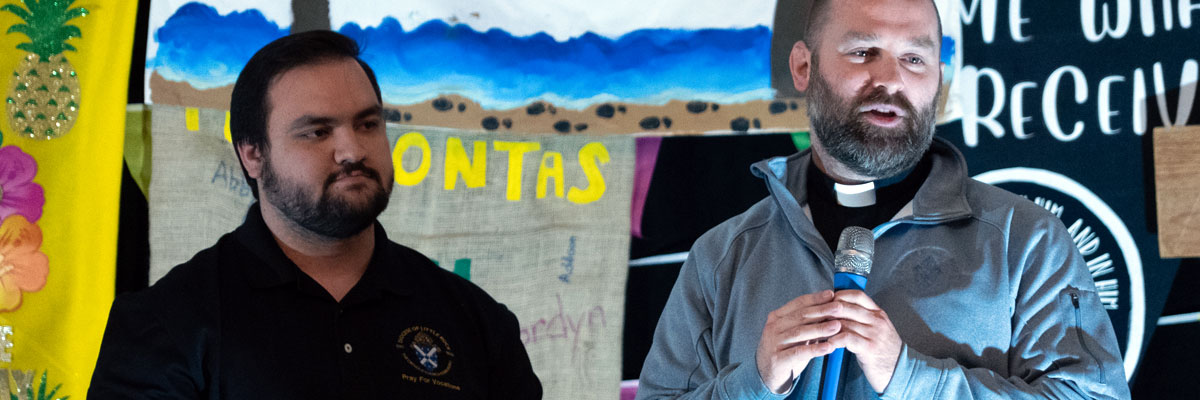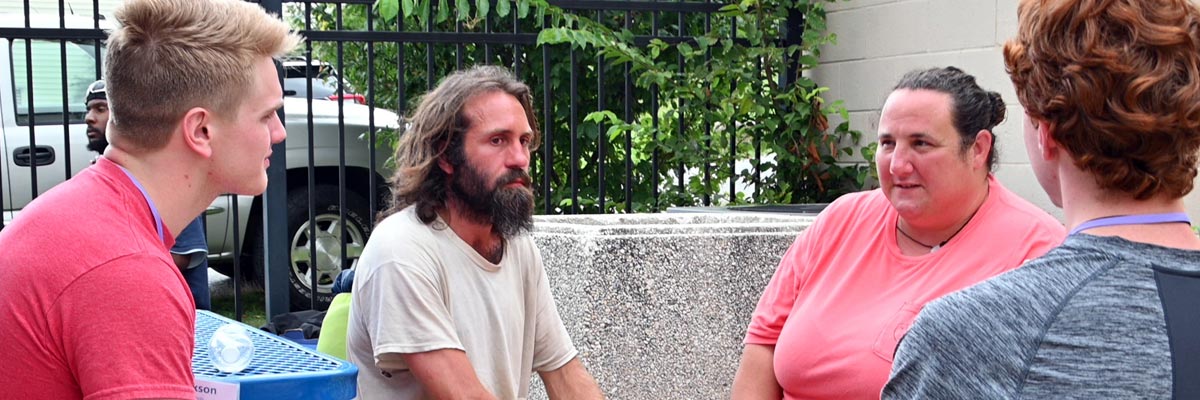Official Website of the
Catholic Diocese of Little Rock
Fourth Sunday of Lent, Year C 2022
Published: March 27, 2022
Bishop Anthony B. Taylor preached the following homily at St. Bartholomew Church in Little Rock and St. Augustine Church in North Little Rock on Sunday, March 27, 2022.

Bishop Taylor
If you've taken Psychology 101 you know that birth order influences how we see ourselves, and is a factor in sibling rivalry. There are many exceptions, but the usual pattern is for the oldest child to be the responsible one. He has two goals: to win his parents' approval and to dominate his other siblings.
The second child's two goals are to get his parents' attention (which is not necessarily the same thing as approval) and to get out from under the thumb of No. 1. The other children have birth order issues as well. How do you parent children this diverse?
There's only one way: you love them all unconditionally. Each one has his issues, but you love them all just the same. And notice that love is not about approval of their behavior, which you may or may not like. Love is about their value to you as a person, regardless of their behavior.
God is throwing a banquet and wants to see his Church packed with returning prodigals, our brothers and sisters. And we have a choice: rejection or compassion, a choice that may well determine whether we get admitted to the banquet ourselves. By the measure we measure we will be measured.
In today's Gospel of the prodigal son, we have a story of birth order, sibling rivalry and unconditional love. True to form, the older son slaved on the farm to win his father's approval, never disobeying any of his orders, while the No. 2 son did some really bad things. First he asked for his inheritance early — symbolically telling his dad to drop dead: that's when you get an inheritance — when your parents die.
Notice, he didn't want his father; he wanted the money. And once his father transferred title to half of his own hard-earned property to him, he then sold it out from under him, took the money and skipped town, leaving no forwarding address.
Yet despite the hurt, his father still loves him and longs to have him back safe and sound, no matter what. And once he hit bottom, having debased himself so thoroughly that even eating pig slop sounded good to him, he finally came to his senses. When he returned home, willing now to be his father's servant and spend the rest of his life making amends, the father ran out to meet him, forgave him everything and threw a party to welcome home this son who had wished him dead and squandered half his property.
The boy was back home alive, and the father couldn't be more relieved.
But the good older brother was not relieved — he felt defrauded and was furious. He had slaved for years to earn his father's approval, but read between the lines: this older son is self-serving too. He obeys because he wants to inherit the farm. His brother had already cashed in his half of the property and now he expects that all of the remaining estate will one day be his.
So the finest robe, the ring, the shoes, the fatted calf, the wine and the food of the welcome home party were all taken from what he, the older son stood to inherit and he resented it. Notice that this loving father has two selfish sons on his hands.
So now he swallows hard and goes out to the field to reassure him that yes, he'll still get to keep the farm. He says: "everything I have is yours," but don't be so small, this is your brother. We know that the younger son came to his senses and returned home, but the story ends without us ever finding out what the older son decides to do.
You and I begin every Mass by acknowledging that we are sinners, wayward children of a loving Father who forgives us and throws this banquet for us. But in our case, it's no mere fatted calf that is killed, it's his only begotten Son. The wine and food are in fact his body and blood, which makes us blood brothers and sisters to each other.
We exchange a sign of peace and mutual acceptance, which is the price of admission to this banquet of God's unconditional love. Mass is not an awards banquet for the righteous; it is a hospital for people with wounded souls — often self-inflicted spiritual wounds, and thus a place of healing for sinners, whether our selfishness resembles that of the older son or the younger son, or both.
God is throwing a banquet and wants to see his Church packed with returning prodigals, our brothers and sisters. And we have a choice: rejection or compassion, a choice that may well determine whether we get admitted to the banquet ourselves. By the measure we measure we will be measured.









